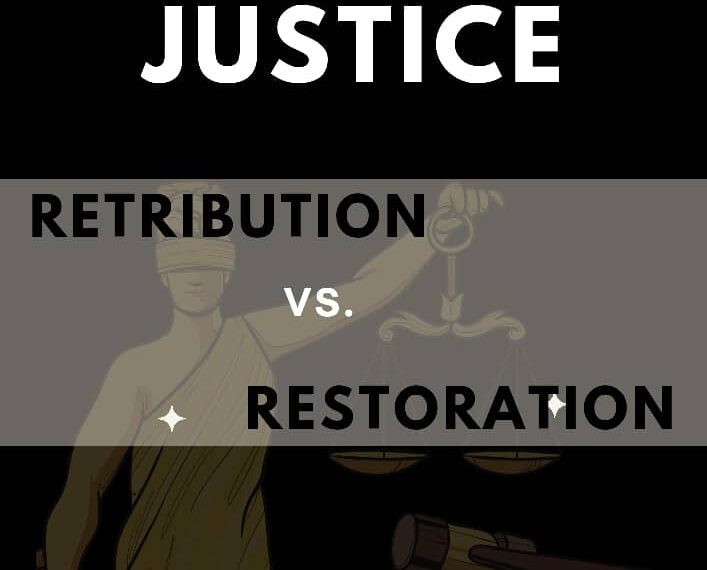by Tajudeen Abdulrauf Dasuki
Abstract—In Islamic law, the observance of Iddat al-Wafāt, a mandated waiting period of four months and ten days by a widow following the death of her husband is a religious obligation rooted in divine instruction. The purpose of this waiting period is not cultural isolation or undue restriction, as some traditions might suggest, but a legal and spiritual measure serving multiple ends: confirmation of pregnancy status, respect for the deceased, and clarity regarding lineage.
This article examines the objectives and jurisprudential foundations of Iddat al-Wafāt under Islamic law and contrasts these with certain customary practices in Nigeria, where widowhood rites are often misunderstood or extended beyond Islamic requirements. Through Qur’anic texts, Hadith, and relevant scholarly interpretations, this work emphasizes the necessity of distinguishing religious injunctions from socio-cultural impositions, while aligning them with practical realities like maintenance rights and societal reintegration of widows.
Introduction
Before delving into Iddat al-Wafāt, it is essential to understand the concept of ‘Iddah (waiting period) in Islamic law. ‘Iddah is a legally prescribed period a woman must observe before she can remarry after the termination of a marriage, either through divorce or the death of her husband. It serves important legal, emotional, and spiritual functions.
According to Aminu Muhammad Gurin, ‘Iddah is defined as “a waiting period that is incumbent upon a woman after the death of her husband or the dissolution of a valid or consummated marriage.”¹ In both cases, the law aims to achieve certain purposes beyond mere seclusion, which include verifying pregnancy to protect lineage (nasab), offering space for reconciliation in cases of revocable divorce, and showing respect for the deceased spouse. For widows specifically, Iddat al-Wafāt begins immediately from the time of the husband’s death, and if the woman is pregnant, it continues until delivery, as stated in Qur’an 65:4.
The Legal Foundation of Iddat al-Wafāt
The authority for Iddat al-Wafāt is drawn from the Qur’an:
“And those among you who die and leave behind wives they (the wives) shall wait by themselves for four months and ten days…” Q2:234
This verse prescribes the exact duration of the waiting period for widows and forms the basis of the rule in Islamic jurisprudence. Any deviation from this such as the claim of a “41-dayS” iddah often practiced in certain communities is neither sanctioned by Qur’anic text nor by any authentic Hadith.
Purposes of Iddat al-Wafāt
The wisdom underlying Iddat al-Wafāt includes:
1. Preservation of Lineage
One of the fundamental objectives of Islamic family law (maqāṣid al-sharī‘ah) is the preservation of lineage (hifz al-nasl). The waiting period ensures that the woman is not pregnant, thereby protecting the identity of the deceased’s offspring and preventing paternity confusion. Allah Says:
“… And do not consummate the marriage until the term prescribed is fulfilled. i.e until the iddah is completed”²
The Prophet of Allah (SAW) says and I quoted it:
“Whoever believes in Allah and the last day should not allow his water (semen) to inseminate the plantation (womb) of another”
2. Honouring the Deceased Husband
The widow’s period of ‘iddah serves as a solemn expression of respect and mourning for the deceased husband. It signifies emotional closure and societal acknowledgment of the marital bond.
3. Upholding Modesty and Social Dignity
Islamic law encourages the widow to remain within the marital home during the waiting period (Qur’an 65:1), not as punishment or imprisonment, but as a safeguard for her dignity and psychological recovery.
Addressing Misconceptions from Customary Practices
In some Nigerian communities, particularly among certain ethnic or tribal groups, cultural practices impose strict confinement on widows, including complete social isolation, shaving of hair, or forbidding even minimal movement, often extending beyond or conflicting with Islamic prescriptions. These practices are neither rooted in Qur’an nor Hadith but stem from customary traditions.
Islam permits the widow to leave her home for genuine needs, including earning a living, attending to urgent family matters, or seeking medical care. Scholars like Ibn Qudāmah and contemporary jurists from the Majma‘ al-Fiqh al-Islāmī have affirmed that such necessary outings do not violate the sanctity of the iddah, provided she returns to her residence afterward.³
Furthermore, the responsibility of maintenance during the ‘iddah rests with the deceased husband’s estates, and where necessary, the woman may seek sustenance through permissible means. As Qur’an 4:34 states:
“Men are protectors and maintainers of women…”
This obligation does not cease immediately upon death; rather, the estate is responsible for fulfilling maintenance during the widow’s waiting period, particularly where no alternative arrangements exist.
Judicial Position in Nigeria
While Islamic personal law is applied in Sharia courts in Northern Nigeria, customary laws remain dominant in other regions. However, the courts have occasionally differentiated religious requirements from cultural practices. In Kafaru v. Kafaru (unreported, Sharia Court of Appeal, Sokoto, 2003), the court ruled that customary confinement of widows for more than four months and ten days without justification is contrary to Islamic law and violates the widow’s rights.
Conclusion
Iddat al-Wafāt is not merely a period of isolation but a vital institution within Islamic family law designed to safeguard the interests of the deceased, the widow, potential heirs, and the larger society. It provides clarity in matters of paternity, preserves dignity, and upholds religious values. The Qur’anic prescription of four months and ten days must not be altered or substituted by customary timelines such as “41 days,” which lack legal and spiritual validity.
Furthermore, the observance of iddah does not prohibit the widow from fulfilling her duties or attending to her needs, provided she respects the boundaries set by Islamic law. In contemporary times, a balanced approach that aligns with the Qur’an, Hadith, and judicial reasoning is necessary to prevent cultural misinterpretations from overshadowing divine guidance.
Footnotes
1. Aminu Muhammad Gurin, An Introduction to Islamic Family Law, p. 187.
2. See commentary of Ibn Kathir on Q2:236.
3. Subul as-Salam (2/296): The hadith indicates that it is permissible for a woman who is see also the resolution of the Islamic Fiqh Council, Jeddah, Session 14 (2003).
Bio
Tajudeen Abdulrauf Dasuki, a writer, optimist and enthusiast of law. Working as Litigation Secretary at S.K. Hassan & Associates (NI’MAH CHAMBERS). Can be reach through+2349079522041 or opeyemidasuki2021@gmail.com




















